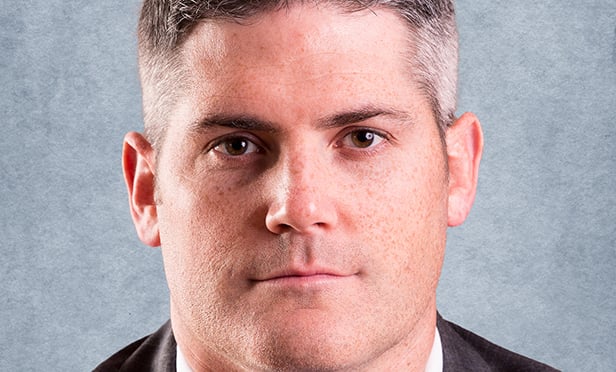ELMWOOD PARK, NJ—Here are two basic market truths. First is that we're still feeling the effects of the 2008 downturn as the market continues to rebuild its capital-market position. Second is that, as a market presence, Lee & Associates, the Orange, CA-based brokerage house, has always been thought of as just that, a brokerage house.
While responding to the first issue, Gary Sopko and Matthew Schnurr solved the second when, earlier this year, they joined Lee to launch the firm's structured finance initiative. The two SVPs came to Lee from Transwestern. It should be noted too that the two-man group expanded by one recently with the addition of partner Ken Lorman.
So business must be good. In fact, it is. “For the past three years or so we've been doing well over $500 million in volume annually,” Sopko tells GlobeSt.com. “That's made up of debt and equity,” with most of that volume on the multifamily side, reflective of the overall market.
In addition to equity capital and construction financing, “We'll do straight-up financings for our clients, whether it's a re-financing for existing assets or new financing for an acquisition,” he says. “As you're aware, may companies previously–before the recession–had the capability to perform those functions inhouse. Now they rely on us to provide those services.”
Not surprisingly, as the new initiative grows, it does so apparently with the help of the rest of the Lee network of brokers, who are leveraging the expansion of weapons in their arsenal. “People know Lee as a leasing brokerage,” says Sopko. “Now we're also capital advisors. The ability to raise debt and equity strengthens the existing client base as well as prospective clients, because now that client isn't going elsewhere to source that capital.”
It isn't easy, he says, especially compared with the go-go '05s, '06s and '07s, the days of lax lending standards. Today, it takes specialized know-how, not the least of which is “some real negotiation with current lenders to get our clients what they need.”
One of the largest aftermath results of the recession is a notable lack of urgency in the marketplace, Sopko believes. And it's “coming from all sides–the buyer, the seller, the equity partner and the lenders. While all parties wish to transact business, no one wants to make a mistake, and therefore the underwriting process can be laborious for all parties.”
This lack of urgency has a few possible deleterious effects. It could make “parties start to rethink their original decisions,” he says. “Or maybe they can no longer find the equity partner or the lender isn't cooperating as expected. Plus, regulatory constraints instituted since 2008 have contributed to the slowing transaction process. Deals tend to die more frequently these days because of these factors.”
Sopko and Schnurr were on the receiving end of that scenario recently. They had been working a development deal for a while when an outside, and very aggressive, buyer came in and swooped the deal out from under their client. But, “Six months later that developer is nowhere to be seen,” says Sopko, “because he couldn't put the deal together, and it's now back in our pocket and moving forward.”
As the man said, it isn't easy. “It's a crazy market out there, and you just have to keep your eyes open and stay positive. Because many deals do come back, and if you're in the right place at the right time, you'll get another crack at it.”
ELMWOOD PARK, NJ—Here are two basic market truths. First is that we're still feeling the effects of the 2008 downturn as the market continues to rebuild its capital-market position. Second is that, as a market presence, Lee & Associates, the Orange, CA-based brokerage house, has always been thought of as just that, a brokerage house.
While responding to the first issue, Gary Sopko and Matthew Schnurr solved the second when, earlier this year, they joined Lee to launch the firm's structured finance initiative. The two SVPs came to Lee from Transwestern. It should be noted too that the two-man group expanded by one recently with the addition of partner Ken Lorman.
So business must be good. In fact, it is. “For the past three years or so we've been doing well over $500 million in volume annually,” Sopko tells GlobeSt.com. “That's made up of debt and equity,” with most of that volume on the multifamily side, reflective of the overall market.
In addition to equity capital and construction financing, “We'll do straight-up financings for our clients, whether it's a re-financing for existing assets or new financing for an acquisition,” he says. “As you're aware, may companies previously–before the recession–had the capability to perform those functions inhouse. Now they rely on us to provide those services.”
Not surprisingly, as the new initiative grows, it does so apparently with the help of the rest of the Lee network of brokers, who are leveraging the expansion of weapons in their arsenal. “People know Lee as a leasing brokerage,” says Sopko. “Now we're also capital advisors. The ability to raise debt and equity strengthens the existing client base as well as prospective clients, because now that client isn't going elsewhere to source that capital.”
It isn't easy, he says, especially compared with the go-go '05s, '06s and '07s, the days of lax lending standards. Today, it takes specialized know-how, not the least of which is “some real negotiation with current lenders to get our clients what they need.”
One of the largest aftermath results of the recession is a notable lack of urgency in the marketplace, Sopko believes. And it's “coming from all sides–the buyer, the seller, the equity partner and the lenders. While all parties wish to transact business, no one wants to make a mistake, and therefore the underwriting process can be laborious for all parties.”
This lack of urgency has a few possible deleterious effects. It could make “parties start to rethink their original decisions,” he says. “Or maybe they can no longer find the equity partner or the lender isn't cooperating as expected. Plus, regulatory constraints instituted since 2008 have contributed to the slowing transaction process. Deals tend to die more frequently these days because of these factors.”
Sopko and Schnurr were on the receiving end of that scenario recently. They had been working a development deal for a while when an outside, and very aggressive, buyer came in and swooped the deal out from under their client. But, “Six months later that developer is nowhere to be seen,” says Sopko, “because he couldn't put the deal together, and it's now back in our pocket and moving forward.”
As the man said, it isn't easy. “It's a crazy market out there, and you just have to keep your eyes open and stay positive. Because many deals do come back, and if you're in the right place at the right time, you'll get another crack at it.”
© 2024 ALM Global, LLC, All Rights Reserved. Request academic re-use from www.copyright.com. All other uses, submit a request to [email protected]. For more information visit Asset & Logo Licensing.









